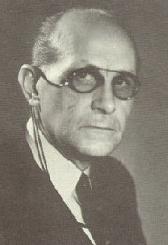A Quote by Friedrich Nietzsche
In this state one enriches everything out of one's own fullness: whatever one sees, whatever wills is seen swelled, taut, strong, overloaded with strength. A man in this state transforms things until they mirror his power—until they are reflections of his perfection. This having to transform into perfection is—art.
Related Quotes
There is absolute truth in anarchism and it is to be seen in its attitude to the sovereignty of the state and to every form of state absolutism. [...] The religious truth of anarchism consists in this, that power over man is bound up with sin and evil, that a state of perfection is a state where there is no power of man over man, that is to say, anarchy. The Kingdom of God is freedom and the absence of such power... the Kingdom of God is anarchy.
PERFECTION, n. An imaginary state of quality distinguished from the actual by an element known as excellence; an attribute of the critic. The editor of an English magazine having received a letter pointing out the erroneous nature of his views and style, and signed "Perfection," promptly wrote at the foot of the letter: "I don't agree with you," and mailed it to Matthew Arnold.
All of man's ills are due to his lack of knowing God within him. The perfection of God's universe is founded upon its perfection of Balance. All of man's ills are caused by toxic poisons generated in his body through unbalance affecting his power of control over the functions of his electric body. Man, as an extension of God, is creator of his own electric body. He is master of his electric body to the extent of his knowing the Light of God in him. ... God says to man: »What I do, ye shall do«, but man is unbelieving for long ages.
God wanted man to know him somehow through his creatures, and since no creature could fittingly reflect the infinite perfection of the Creator, he multiplied his creatures and gave a certain goodness and perfection to each of them so that from them we could judge the goodness and perfection of the Creator, who embraces infinite perfection in the perfection of his one and utterly simple essence.
[T]he mass-man sees in the State an anonymous power, and feeling himself, like it, anonymous, he believes that the State is something of his own. Suppose that in the public life of a country some difficulty, conflict, or problem presents itself, the mass-man will tend to demand that the State intervene immediately and undertake a solution directly with its immense and unassailable resources. This is the gravest danger that to-day threatens civilisation: State intervention; the absorption of all spontaneous social effort by the State.
[God] is perfect not only insofar as He is absolute perfection, defining perfection in Himself and from His singular existence and total perfection, but also because He is far beyond being so. He sets a boundary to the boundless and in His total unity He rises above all limitation. He is neither contained nor comprehended by anything. He reaches out to everything and beyond everything and does so with unfailing generosity and unstinted activity.
When man has mastered money he shall have mastered not only his economic problem of prosperity but also his political problem, for he will see that money has no place in state functions, and, the money power being entirely in his own hands, he will easily master the state and clearly define its services. Thus money must be seen as the means of mastery of all economic and political problems. Until we have mastered money we shall not master any of our problems. Not money, but a false money system, is the root of all evil.
We've got to be long distance runners on the spiritual path. We want to run as fast as we can, but at the same time realize that if God isn't at the end of that 100 yards, we don't fall flat of exhaustion. We've got to have whatever rhythm it takes to be able to go on for incarnations until we find that state of perfection we've been seeking.
The perfection of the effect demonstrates the perfection of the cause, for a greater power brings about a more perfect effect. But God is the most perfect agent. Therefore, things created by Him obtain perfection from Him. So, to detract from the perfection of creatures is to detract from the perfection of divine power.
God shows us in Himself, strange as it may seem, not only authoritative perfection, but even the perfection of obedience--an obedience to His own laws; and in the cumbrous movement of those unwieldiest of his creatures we are reminded, even in His divine essence, of that attribute of uprightness in the human creature "that sweareth to his own hurt and changeth not.
Whatever the situation may be, in the recollection of death there is reward and merit. For even the man engrossed in the world benefits from it by acquiring an aversion to this world, since it spoils his contentment and the fullness of his pleasure; and everything which spoils for man his pleasures and his appetites is one of the means of deliverance.
In bullfighting there is an interesting parallel to the pause as a place of refuge and renewal. It is believed that in the midst of a fight, a bull can find his own particular area of safety in the arena. There he can reclaim his strength and power. This place and inner state are called his querencia. As long as the bull remains enraged and reactive, the matador is in charge. Yet when he finds his querencia, he gathers his strength and loses his fear. From the matador's perspective, at this point the bull is truly dangerous, for he has tapped into his power.










































